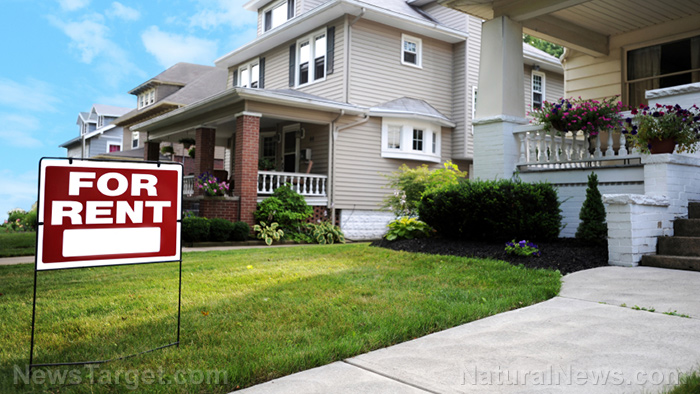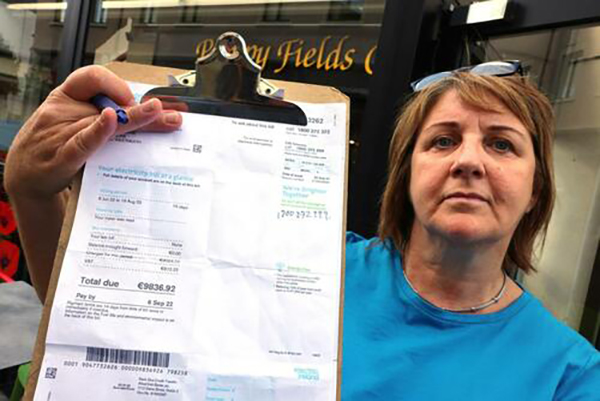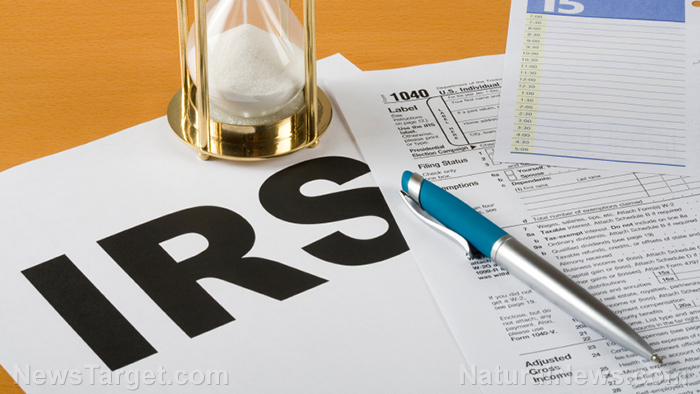Census Bureau: 3.8 Million renters likely to be evicted in the next 2 months
09/01/2022 / By Belle Carter

The Census Bureau’s latest data revealed a total of 8.5 million renters were behind on their rent at the end of August and 3.8 million of them are very likely to be evicted in the next two months.
The Eviction Lab at Princeton University said in August that evictions were 52 percent above average in Tampa, 90 percent above average in Houston and 94 percent above average in Minneapolis-St. Paul.
Meanwhile, the median rent in the U.S. topped $2,000 a month in June for the first time ever and the continued increases indicate no sign of stopping. (Related: Average rent prices in the US surpass $2,000 amid inflation and rising mortgage interest rates.)
Rental costs have risen faster than house prices since 2006. At the same time, there have been shortages of available rental units since the “Great Recession” during the late 2000s. Also, according to the Center for American Progress, the U.S. recorded a shortage of seven million affordable housing units for low-income renters one year prior to the pandemic. This ushered in a crisis that left just 37 affordable rental homes for every 100 low-income households looking to rent.
Additionally, the homes that are available are often still out of reach. Rent rates are up nearly 25 percent since before the pandemic, with an increase of 15 percent in just the past 12 months, as per tech real-estate marketplace company Zillow.
More than 30 million people or nearly half of all renters had been suffering from rent hikes in the last 12 months. Nineteen percent of them are paying a monthly increase of $100 to $250, seven percent are paying $250 to $500 more and four percent need to find another $500 a month to stay in their apartments.

To put up with the soaring prices, 57 percent of them relied on credit cards, loans, savings or selling off some assets, including raiding their retirement accounts. Despite these measures, 14 percent of the renters were not completely caught up on back rent, according to their poll answers.
The Department of the Treasury website states: “Even as the American economy continues its recovery from the devastating impact of the pandemic, millions of Americans face deep rental debt and fear evictions and the loss of basic housing security.
The Emergency Rental Assistance (ERA) program makes funding available to assist households that are unable to pay rent or utilities. ERA1 provides up to $25 billion under the Consolidated Appropriations Act, 2021, while ERA2 provides up to $21.55 billion under the American Rescue Plan Act of 2021.
However, some states and cities are slow to make the money available to landlords on behalf of tenants who can’t pay their rents.
Small business owners struggling to pay rent
According to a recent rent report, households are not the only ones struggling to pay rent. Small businesses are also grappling with the soaring prices of commodities.
The Alignable, an online referral network for small businesses, released an analysis based on a poll conducted among 3,553 small business owners. The result shows that nearly half of the small business owners in the transportation and restaurant sectors were unable to pay their July rent in full and on time.
The analysis noted that 48 percent of trucking companies, taxi and limo services and independent Uber and Lyft drivers failed to cover July rent, in addition to 45 percent of restaurant owners, 44 percent of non-profits and 44 percent of retailers.
Most of the survey participants pointed to the record-high inflation, including escalating rents, gas prices, supplies and transportation/shipping costs as reasons why they couldn’t pay for their full rent in July.
Forty-six percent said they’re paying more for rent now than they did six months ago, and another four percent mentioned their landlords’ plan to increase their rent soon.
Visit Bubble.news for more news about housing and rental prices.
Watch the below video that talks about current issues, including evictions and food shortages.
This video is from the Evolutionary Energy Arts channel on Brighteon.com.
More related stories:
Average monthly apartment rent surges to all-time high $2,000, real estate firm reveals.
Fewer Americans are buying homes as worsening inflation takes toll.
Sources include:
Submit a correction >>
Tagged Under:
Bubble, chaos, Collapse, debt bomb, debt collapse, economic collapse, economy, Great Recession, housing, housing crisis, Inflation, local businesses, market crash, money supply, mortgages, panic, property, rent, rental evictions, risk
This article may contain statements that reflect the opinion of the author
RECENT NEWS & ARTICLES
COPYRIGHT © 2017 COLLAPSE.NEWS
All content posted on this site is protected under Free Speech. Collapse.news is not responsible for content written by contributing authors. The information on this site is provided for educational and entertainment purposes only. It is not intended as a substitute for professional advice of any kind. Collapse.news assumes no responsibility for the use or misuse of this material. All trademarks, registered trademarks and service marks mentioned on this site are the property of their respective owners.




















